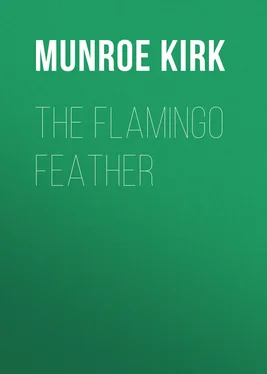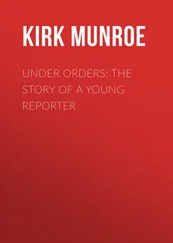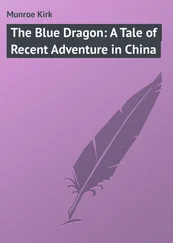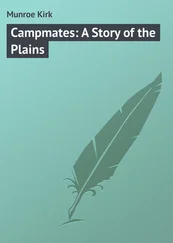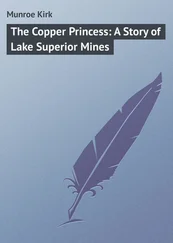Kirk Munroe - The Flamingo Feather
Здесь есть возможность читать онлайн «Kirk Munroe - The Flamingo Feather» — ознакомительный отрывок электронной книги совершенно бесплатно, а после прочтения отрывка купить полную версию. В некоторых случаях можно слушать аудио, скачать через торрент в формате fb2 и присутствует краткое содержание. Жанр: foreign_children, История, foreign_antique, foreign_prose, на английском языке. Описание произведения, (предисловие) а так же отзывы посетителей доступны на портале библиотеки ЛибКат.
- Название:The Flamingo Feather
- Автор:
- Жанр:
- Год:неизвестен
- ISBN:нет данных
- Рейтинг книги:4 / 5. Голосов: 1
-
Избранное:Добавить в избранное
- Отзывы:
-
Ваша оценка:
- 80
- 1
- 2
- 3
- 4
- 5
The Flamingo Feather: краткое содержание, описание и аннотация
Предлагаем к чтению аннотацию, описание, краткое содержание или предисловие (зависит от того, что написал сам автор книги «The Flamingo Feather»). Если вы не нашли необходимую информацию о книге — напишите в комментариях, мы постараемся отыскать её.
The Flamingo Feather — читать онлайн ознакомительный отрывок
Ниже представлен текст книги, разбитый по страницам. Система сохранения места последней прочитанной страницы, позволяет с удобством читать онлайн бесплатно книгу «The Flamingo Feather», без необходимости каждый раз заново искать на чём Вы остановились. Поставьте закладку, и сможете в любой момент перейти на страницу, на которой закончили чтение.
Интервал:
Закладка:
In the second bout, after a sharp struggle, Has-se seemed suddenly to give way, and almost immediately afterwards Chitta was hurled to earth, but how, no one could tell, except Réné, who with the keenest interest watched the effect of his lesson. As Chitta rose to his feet he seemed dazed, and regarded his opponent with a bewildered air, as though there were something about him he could not understand.
Again they clinched and strained and tugged, until the perspiration rolled in great beads from their shining bodies, and their breath came in short gasps. It seemed as though Réné's friend must give in, when, presto! down went Chitta again; while Has-se stood erect, a proud smile on his face, winner of the games, and Bow-bearer to his father for a year.
Has-se had still to undergo one more test of endurance before he could call himself a warrior, which he must be able to do ere he could assume the duties of Bow-bearer. He must pass through the ordeal of the Cassine, or black drink. This was a concoction prepared by the medicine-men, of roots and leaves, from a recipe the secret of which was most jealously guarded by them; and to drink of it was to subject one's self to the most agonizing pains, which, however, were but of short duration. In spite of his sufferings, the youth who drank from the horrid bowl was expected to preserve a smiling face, nor admit by word or sign that he was undergoing aught but the most pleasing sensations. If he failed in this one thing, no matter what record he had previously gained for courage or daring, he was ever afterwards condemned to share the work of women, nor might he ever again bear arms or take part in the chase or in war.
Immediately after his overthrow of Chitta, and while the shouts of joy over his victory were still ringing in his ears, Has-se was led to an elevated seat, where he could be seen of all the people, and a bowl of the awful mixture was handed him. Without hesitation, and with a proud glance around him, the brave youth swallowed the nauseous draught, and then folding his arms, gazed with a smiling face upon the assembled multitude. For fifteen minutes he sat there amid a death-like silence, calm and unmoved, though the great beads of perspiration rolling from his forehead showed what he was enduring. At the end of that time a great shout from the people told him that his ordeal was over; and, weak and faint, he was led away to a place where he might recover in quiet from the effects of his terrible sufferings, and enjoy in peace the first glorious thoughts that now he was indeed a Bow-bearer and a warrior.
Réné sprang forward from his seat to seize and shake his friend's hand, while from all, Indians as well as whites, arose shouts of joy at the victory of the brave and much-loved lad who wore the Flamingo Feather.
As the angry Chitta turned away from the scene of his defeat, his heart was filled with rage at these shouts, and he muttered a deep threat of vengeance upon all who uttered them, those of his own race as well as the pale-faces.
CHAPTER III
So Has-se the Sunbeam became Bow-bearer to his father, the great chief Micco, and Chitta the Snake was disappointed of his ambition. By some means he became convinced that Réné de Veaux had instructed Has-se in his newly acquired trick of wrestling; and though he had no proof of this, he conceived a bitter hatred against the white lad. He had especially included him in his muttered threat of vengeance against all those who greeted his final overthrow with shouts of joy; but, like the wily reptile whose name he bore, he was content to bide his time and await his opportunity to strike a deadly blow. After the games were ended he disappeared, and was seen no more that day.
His absence was hardly noted, for immediately after Has-se's victory the entire assembly repaired to the great mound which had gradually been raised by the accumulation of shells, bones, broken pottery, and charred wood that many generations of Indian feasters had left behind them, and here was spread the feast of the day. Then followed dancing and singing, which were continued far into the night.
At length the dancers became exhausted; the men who beat the drums and rattled the terrapin shells filled with dried palmetto berries grew so drowsy that their music sounded fainter and fainter, until it finally ceased altogether, and by two hours after midnight the whole encampment was buried in profound slumber. Even those whose duty it was to stand guard dozed at their posts, and the silence of the night was only broken by the occasional hootings of Hup-pe (the great owl).
Had the guards been awake instead of dreaming, it is possible that they might have noticed the dark figure of a man who noiselessly and stealthily crept amid the heavy shadows on the edge of the forest towards the great granary, or storehouse, in which was kept all the ripe maize of the tribe, together with much starch-root (koonti katki) and a large quantity of yams. The granary was built of pitch-pine posts and poles, heavily thatched with palm-leaves, that the summer suns had dried to a tinder.
Occasionally the dark figure skulking among the shadows came to little patches of bright moonlight, and to cross these he lay flat on the ground and writhed his way through the grass like a snake. A close observer would have noticed a dull, steady glow which came from a round object that the skulker carried with great care. If he had been near enough he would have seen that this was a large gourd, in which, on a bed of sand, were a quantity of live coals taken from one of the fires that still smouldered about the epola, or place of dancing. In his other hand the man carried a few fat-pine splinters that would burn almost like gun-powder.
At length, without having attracted attention from any one of the encamped Indians, or the drowsy guards upon whom they depended for safety, the figure reached the granary, and disappeared amid the dark shadows of its walls. Crouching to the ground, and screening his gourd of coals with his robe, he thrust into it one end of the bundle of fat-pine splinters and blew gently upon them. They smoked for a minute, and then burst into a quick blaze.
Beginning at one end of the granary, this torch was applied to the dry thatch that covered it, and it instantly sprang into flame. As the figure ran along the end of the structure, around the corner, and down the entire length of its side, always keeping in the shadow, he applied the torch in a dozen places, and then flinging it on top of the low roof, where it speedily ignited the covering, he bounded away into the darkness, uttering, as he did so, a long-drawn, ear-piercing yell of triumph.
By the time the nodding guards had discovered the flames and given the alarm, the whole granary was in a blaze, and the startled Indians, who rushed out from the lodges and palmetto booths, could do nothing but stand helpless and gaze at the destruction of their property. All asked how it had happened, and who had done this thing, but not even the guards could offer the slightest explanation.
Meantime the author of all this mischief stopped when he had gained what he considered a safe distance from the fire, and, concealed by the friendly shadows of the forest, stood with folded arms and scowling features gazing at the result of his efforts. At length the light from the burning building grew so bright that even the shadow in which he stood began to be illuminated, and he turned to go away. As he did so he shook his clenched hand towards the burning granary, and muttered, "The white man and the red man shall both learn to dread the fangs of the Snake, for thus do I declare war against them both."
As he spoke, a voice beside him, that he instantly recognized as that of Has-se, exclaimed, "What! is this thy work, Chitta?"
Читать дальшеИнтервал:
Закладка:
Похожие книги на «The Flamingo Feather»
Представляем Вашему вниманию похожие книги на «The Flamingo Feather» списком для выбора. Мы отобрали схожую по названию и смыслу литературу в надежде предоставить читателям больше вариантов отыскать новые, интересные, ещё непрочитанные произведения.
Обсуждение, отзывы о книге «The Flamingo Feather» и просто собственные мнения читателей. Оставьте ваши комментарии, напишите, что Вы думаете о произведении, его смысле или главных героях. Укажите что конкретно понравилось, а что нет, и почему Вы так считаете.
